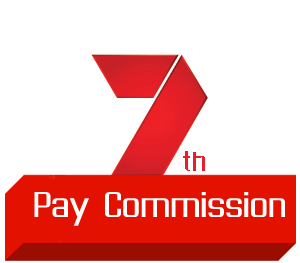Removal of Grade Pay System in 7th Pay Commission – A detailed report
Will the removal of Grade Pay System by the 7th Pay Commission help Central Government employees? – This is the topic of this article.
“Unconfirmed reports say that the 7th Pay Commission is very likely to recommend the abolishing of the Grade Pay System introduced by the 6th Pay Commission.”
Not only the Government, but the Central Government employees too are hoping and wishing that the 7th Pay Commission functions independently, free from interventions. The report of the previous Pay Commissions will guide for determining the revision of pay scale and pay bands, allowances, retirement benefits and other facilities/benefits of more than 50 lakh employees. The Pay Commission also considers the recommendations, suggestions and inputs gathered from employees all over the country and presented as memorandums by federations like the NC JCM and the Confederation.
There is no rule that the new Pay Commission has to follow the same methodology and determination followed by the previous Pay Commissions. Therefore, one cannot state for sure that the 7th Pay Commission will tow the guidelines issued by the 6th or the 5th Pay Commission while deciding the new pay scale and pay bands.
One has to keep in mind the fact that the 6th Pay Commission was radically different from the recommendations and guidelines issued by the 5th Pay Commission. One has to also remember that a number of industry experts, who predicted the recommendations of the 6th Pay Commission based on the trends of the previous Pay Commission, were proved completely wrong.
If one Pay Commission has the right to recommend the splitting of the Pay Scale into two, the next Pay Commission has all the powers to completely abolish the system. But, this is not the issue!
Will the Central Government employees benefit by the removal of the Grade Pay system? This is the question now.
It will definitely be beneficial. Here are the reasons why.
It is unacceptable that a promotion, which comes after waiting for many years, brings with it an increment of just Rs.100.
None has until now accepted the splitting of the promotional hierarchy, which had been followed for years, into two.
The anomalies that prevailed due to the ‘Grade Pay Hierarchy’ which was introduced under the MACP promotional system, still remain unresolved.
When the discussions and debates on MACP system continued to grow unabated during the NC JCM Anomaly Committee meeting, it was decided that a separate meeting ought to be held to analyze this issue.
Most of the individual requests from the Central Government employees this time are about the MACP promotional system. The reason is the Grade Pay structure introduced by the 6th Pay Commission.
And also can list out many reasons to abolish the Grade Pay System.
Source: www.90paisa.org
Will the removal of Grade Pay System by the 7th Pay Commission help Central Government employees? – This is the topic of this article.
“Unconfirmed reports say that the 7th Pay Commission is very likely to recommend the abolishing of the Grade Pay System introduced by the 6th Pay Commission.”
Not only the Government, but the Central Government employees too are hoping and wishing that the 7th Pay Commission functions independently, free from interventions. The report of the previous Pay Commissions will guide for determining the revision of pay scale and pay bands, allowances, retirement benefits and other facilities/benefits of more than 50 lakh employees. The Pay Commission also considers the recommendations, suggestions and inputs gathered from employees all over the country and presented as memorandums by federations like the NC JCM and the Confederation.
There is no rule that the new Pay Commission has to follow the same methodology and determination followed by the previous Pay Commissions. Therefore, one cannot state for sure that the 7th Pay Commission will tow the guidelines issued by the 6th or the 5th Pay Commission while deciding the new pay scale and pay bands.
One has to keep in mind the fact that the 6th Pay Commission was radically different from the recommendations and guidelines issued by the 5th Pay Commission. One has to also remember that a number of industry experts, who predicted the recommendations of the 6th Pay Commission based on the trends of the previous Pay Commission, were proved completely wrong.
If one Pay Commission has the right to recommend the splitting of the Pay Scale into two, the next Pay Commission has all the powers to completely abolish the system. But, this is not the issue!
Will the Central Government employees benefit by the removal of the Grade Pay system? This is the question now.
It will definitely be beneficial. Here are the reasons why.
It is unacceptable that a promotion, which comes after waiting for many years, brings with it an increment of just Rs.100.
None has until now accepted the splitting of the promotional hierarchy, which had been followed for years, into two.
The anomalies that prevailed due to the ‘Grade Pay Hierarchy’ which was introduced under the MACP promotional system, still remain unresolved.
When the discussions and debates on MACP system continued to grow unabated during the NC JCM Anomaly Committee meeting, it was decided that a separate meeting ought to be held to analyze this issue.
Most of the individual requests from the Central Government employees this time are about the MACP promotional system. The reason is the Grade Pay structure introduced by the 6th Pay Commission.
And also can list out many reasons to abolish the Grade Pay System.
Source: www.90paisa.org





